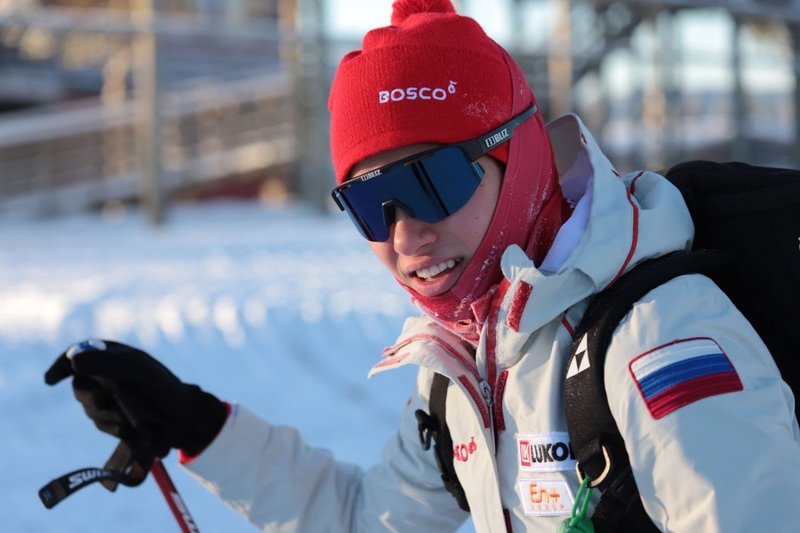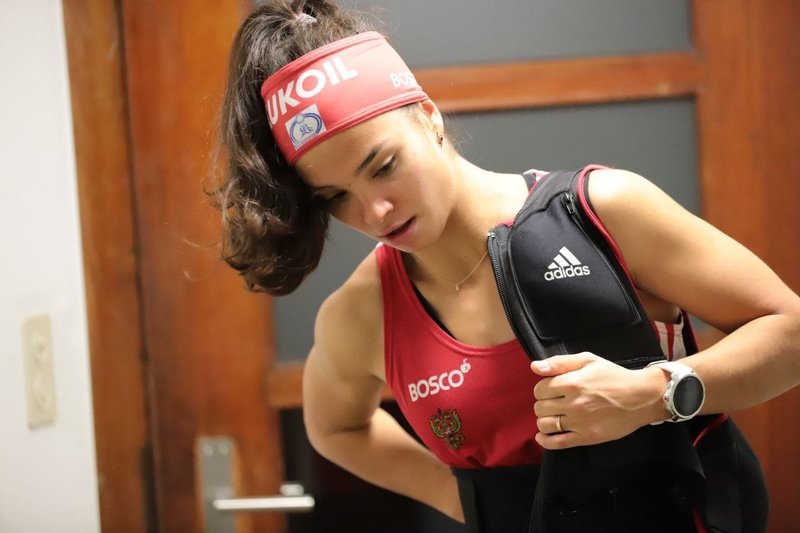The success of an athlete is above all the work of a coach. I will not tire of repeating that now the role of the coach in the process is more important than ever. So many nuances in the preparation. The efforts of other specialists are also extremely important – doctors, physiotherapists, masters of equipment preparation. I’ve already touched on their work a bit in my column, a more detailed story is coming soon.
Today I want to talk about mental preparation. Not one, even the best trainer, will achieve anything if the athlete has autumn in his soul, but there are problems in life. Psychological trust is based on three pillars: the parents, the atmosphere in the team and a loved one.
Parents
Parents of all skiers fall into two categories: those who actively participate in their child’s career and those who do not. It is clear that it is strange when mom and dad do not go to regional starts of ten-year-old offspring, but far from everyone has the desire and the opportunity to go to regional competitions to hundreds even thousands of kilometres. There can be no “good” and “bad” – both options are normal. My parents were the last in the competitions where I raced… you know, I don’t even remember when! I haven’t played in Kamchatka for a long time. And they never came to All-Russian or international competitions – far and expensive.
Does that mean I feel left out? Of course not. My parents worry, get sick and support me. After the Olympics, I had a dream – to invite them to the World Cup in Tyumen, but all plans fell apart when the FIS canceled the starts in Russia.
On the other hand, we have many girls and boys in the national team, whose parents took and still take today the most direct part of their career, from training to preparing skis for competitions. And, it seems, it benefits everyone – but it is within the framework of the relationships that have developed in their families.
Crew
I read somewhere that spacecraft crews, who must spend months together in limited space, are selected primarily for their psychological compatibility.
Maybe there is something similar in team sports and coaches complete teams according to certain personal indicators, and not just sports. No wonder they have captains, vice-captains and just reputable players.
With us, in individual sports, this does not happen: the one who has fulfilled the standard, he goes from the extended team to the main team. I fulfilled the selection conditions by finishing tenth overall in the World Cup in Davos and went to Beijing. Other girls, respectively, too – some earlier, some later. Someone was near, but missed – everyone has their own story.
A consequence of this individual selection is that the composition of teammates is unpredictable and often changes. Another thing follows from this: it is right to have equal, respectful and professional relations with absolutely everyone. This is my firm rule, and I embody it as best I can. I am always ready to help in the process of formation, in everyday life – but I do not enter my soul, I do not condemn hobbies and interests and rarely discuss them. Everyone fully understands that any disagreement affects the result, and for us the national team is not a club of interests, but a profession, a career.
When it comes to free time at training camp, it seems to me that a lot has changed in the last few years. It is true that in our generation, friends with whom we want and can be frank, and even novels are online. They say team management was issuing fines for smartphones at breakfast and dinner. I find it hard to imagine this – no one in my generation can and won’t live without a smartphone. There really are “fathers and sons” here, although from what I can see the “fathers” are now even more active on their phones than the “kids”.
Personal relationships
At the age of 15-16, when I decided to play sports professionally, nothing but the sport itself interested me. Did not distract. I thought there was a time and a place for everything. I made no mistake.
When love comes, it’s an added and very serious bonus. Falling in love, you do not go to training and at the start of the race – you soar. Literally overtaking rivals partly on an emotional rush.
You can, of course, fall in love without thinking about the positive and negative consequences. But a professional athlete is unlikely to afford such a luxury.
The athlete – if he wants to achieve something – must build his life so that every action leads to the goal, to victory. The long-term goal of a relationship is emotional support plus a dose of practical help. I’m not going to go into detail about my personal life, let alone the personal lives of others – but I will say one thing: all champions do very well in this regard. Strong relationships, a reliable full-back, love and support in everything – this is absolute “legal doping” and it works!
Another thing is that the “second half”, entering into a relationship with an athlete, must first understand that dating in the classic version will not work. We are constantly on the road, at training camps and competitions. Bragging to your friends that your girlfriend is in the news again is fine, but be prepared to learn to wait and enjoy short meetings, not your schedule.
And further. As the success of athletes grows, more and more attention surrounds – this is definitely not a situation for jealous boyfriends!
In conclusion: I don’t know who said “a strong full-back is the key to success”, but he was a thousand times right. Or her. Most likely, after all, she knew what she was talking about!
Source : MatchTV
I am Sandra Jackson, a journalist and content creator with extensive experience in the news industry. I have been working in the news media for over five years. During this time, I have worked as an author and editor at various outlets producing high-quality content that attracts readers from different demographics.





